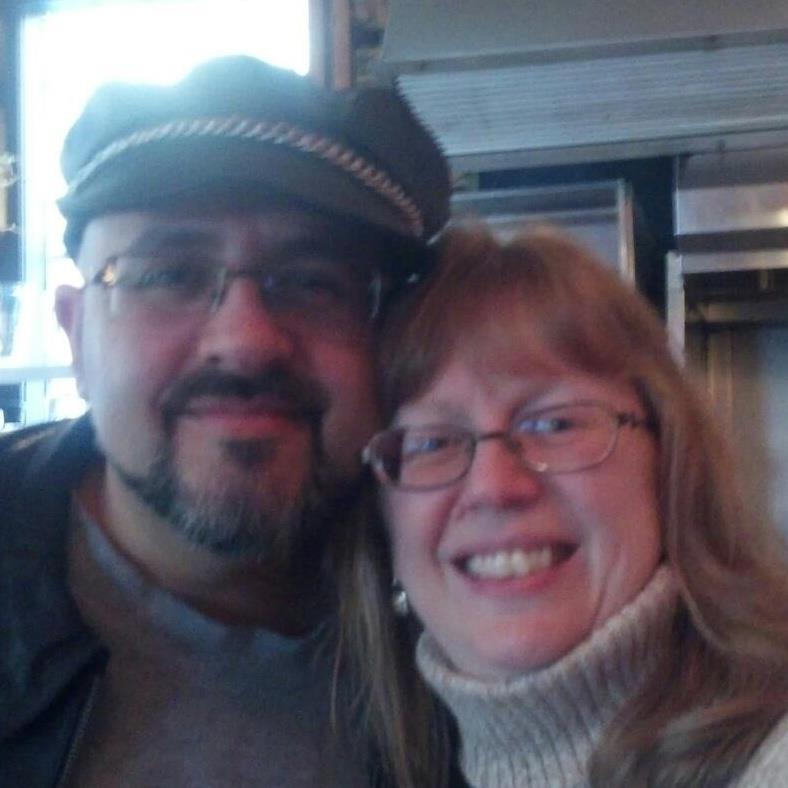In this installment, the author opens up about the binge-eating disorder he tried to hide for years — and how he managed to bring it under control.
I don’t beat myself for having engaged in addictive behavior. That kind of thing is obvious for someone with OCD. If there’s a compulsion to be rubbed raw, you go for it, no matter how destructive it is on body and soul. Then you wake up the next day and do it again.
But on occasion I find myself wallowing in this question: “Why, oh why, couldn’t I be addicted to something more common like alcohol or heroin?”
Hell, many of the musicians, writers and political leaders who’ve inspired me drank to excess, smoked nonstop or even used needles.
Winston Churchill spent every waking hour of WW II buzzed. He dipped his cigars in brandy and port. Phil Lynott (Thin Lizzy) and Nikki Sixx (Motley Crue) almost made being a junkie look cool. It wasn’t cool, of course. But that’s how I think when under the haze.
In my case, the addiction is food, something we need to survive. It’s not the least bit cool. Certainly not a “normal” addiction.
That food would be my problem makes perfect sense. As a kid sick with Chron’s Disease much of the time, I was often in the hospital for weeks at a time with a feeding tube that was inserted through the left side of my chest. That’s how I got nourishment. I wasn’t allowed to eat or drink anything. At a very early age, my relationship with food was doomed to dysfunction.
It didn’t help that I was from a family of over-eaters who would stuff themselves for comfort in times of stress and fatigue.
In our society it’s considered perfectly OK to indulge in the food. Time and again, I’ve heard it said that overeating is a lot better than drinking or drugging. But for me, back when I was at my worst, binge eating was a secret, sinister and shameful activity.
Here’s how it works:
You get up in the morning and swear to God that you’re going to eat like a normal person. You pack some healthy food for the office. Then you get in the car and the trouble starts before the car’s out of the driveway. Another personality emerges from the back of the brain, urging you to indulge. It starts as a whisper but builds until it vibrates through the skull like a power saw.
The food calls out to you. And you’ll do whatever it takes to get it, then spend a lot of time trying to cover your tracks.
Before you know it, you’re in the DD drive-thru ordering two boxes of everything. It all gets eaten by the time you reach the office. You get to the desk disgusted, vowing to never do that again. But by mid-morning, the food is calling again. You sneak out before lunchtime and gorge on whatever else you can find, then you do it again on the way home from work.
You pull into McDonald’s and order about $30 of food, enough to feed four people. From the privacy of the car, the bags are emptied. By the time you get home, you wish you were dead.
The cycle repeats for days at a time, sometimes weeks and months.
For many years I hid it well, especially in my early 20s. I would binge for a week, then starve and work out for another week. That mostly kept the weight at a normal-looking level.
Call it athletic Bulimia.
In one inspired episode, I downed $30 of fast food a day for two weeks, then went a week eating nothing but Raisin Bran in the morning, then nothing but black coffee for the rest of the day. After the cereal, I’d work out for two hours straight.
In my mid-20s, once I started working for a living, I kept up the eating but couldn’t do the other things anymore. So my weight rose to 280. In the late 1990s I managed to drop 100 pounds and keep it off through periodic fasting.
Then I started to face down what would eventually be diagnosed as OCD, and I once again gave in to the food. The gloves were off.
The binging continued unabated for three years. The weight went back up to 260. I also started to run out of clever ways to mask over all the money I was spending on my habit. I was slick. I’d take $60 from the checking account and tell my wife it was for an office expense or some other seemingly legitimate thing. But she’s too smart to fall for that for long.
Then I discovered Over-eaters Anonymous (OA), a 12-step program just like AA, where the focus is on food instead of booze. I didn’t grasp it immediately. In fact, I thought everyone at these meetings were nuts. They were, of course, but so was I.
Thing is, I had reached a point in my learning to manage OCD where I was ready to face down the addiction. If it had to be through something crazy, so be it.
Through the program, I gave up flour and sugar. The plan is to be done with those ingredients for life. Put them together and they are essentially my cocaine. I dropped 65 pounds on the spot. But more importantly, many of the ailments I had went away. I stopped waking up in the middle of the night choking on stomach acid. The migraines lessened substantially. And I found a mental clarity I never knew before.
I can’t say I’ve slaughtered the demon. Addicts relapse all the time. But I have a program I didn’t have before; a road map unlike any other.
My odds of success are better than ever.
But before I could get there, I had to unravel the wiring in my head, learn to live with a mental disorder and then make a bold change in my way of eating.
It’s not cool at all. If you’re laughing because I let the food drag me to such a state, I don’t blame you. In a way, it is funny. Crazy people do stupid things. And stupid is often funny.







